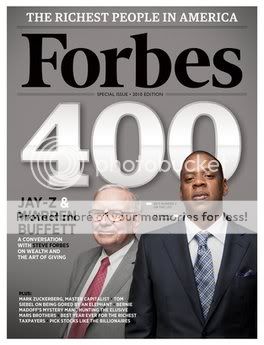By Stacey Gan Pin Hui, Diploma in Media Studies & Management
Stacey, who was covering the YOG opening ceremony as a young journalist, shares her experience.

(From left)Marcus, Rebecca and Stacey
If there was one thing that could have literally dampened the high spirits of those seated at the Marina Bay floating platform on 14 August, it would have been rain. Fortunately, the threat of rain proved to be empty, though rain clouds did hover menacingly over the venue of the inaugural Youth Olympic Games (YOG) opening ceremony. My classmates, Marcus and Rebecca, and I were among the 27,000 attendees who did not have to use the plastic ponchos provided in our goodie bags after all. The ceremony began as scheduled, much to our relief.
The massive scale of the event only began to dawn on us as we sat in the media section, located at the highest level of the seating gallery against a backdrop of the flags of all 204 participating countries. We watched in awe as journalists, photographers and cameramen from all over the world streamed past us. We admired their equipment, feeling like we had yet to earn our stripes in order to sit with them. It was really an international gathering! Thais sat beside Canadians while Germans chatted excitedly to each other as the Brazilians near them rummaged through their goodie bags. A cacophony of voices with accents from all five continents surrounded us, and left us feeling like we had travelled overseas.
Clocking in at an estimated two and a half hours, Singapore’s version of the Olympic opening ceremony kicked off with a performance by Malay, Chinese, Indian and Eurasian participants. This introduced Singapore’s multi-cultural society to an estimated 2 billion viewers around the world to. For me, that segment was reminiscent of National Day Parade performances, where messages of racial harmony are de rigueur. But when I considered that the world was seeing, for the first time, what Singaporeans have always enjoyed every year, I began to appreciate it in a whole new light.
The next segment, titled ‘Origins’, took the audience through a brief recap of Singapore’s journey from past to present. As a Singaporean, I was thrilled to see our nation’s story being told on such a platform, with the world watching. Singapore does have a lot of achievements to be proud of, built on the hard work and determination of our ancestors, and I was glad that as host city of the YOG, we had been given a chance to let the world know how far we have come.
The rest of the ceremony was laden with symbolism, with segments about what motivates the young Olympians to strive for excellence, and how they overcome insecurities and fears to do their best in the face of competition. There was even a segment titled ‘S.O.S.’ that called for the world to work together to address global problems such as war and natural disasters. Each segment was kept short and sweet, hardly exceeding 10 minutes each. It made the ceremony feel like a fast-paced movie with spectacular special effects such as laser shows and generous fireworks displays at the end of each segment.
The next highlight was the parade of flags of all participating countries. Marcus, Rebecca and I waited impatiently for Singapore’s flag to enter. As we waited, the audience members took turns to cheer themselves hoarse when their nation’s flag was paraded. The excitement and sense of anticipation around us was incredible. A large group of Belgians were seated in front of us, and all of them stood up in a great show of support for their country, yelling, clapping and waving miniature Olympic flags when the Belgian flag made its appearance. As host nation of the YOG, Singapore’s flag was the last to enter, and I do not think I am being biased by saying that it received the longest and loudest cheers. It was my first time cheering for my country along with such an enormous audience, and it warmed my heart to see that it was not just the Singaporeans who stood up for Singapore’s flag. In fact, the majority of the people around us stood up to applaud. How fantastic it was to watch the foreign journalists that my classmates and I had admired earlier cheering for Singapore!
If I had to name my favourite part of the ceremony, it would have to be the culmination of the YOG torch relay. The flame was brought to the Marina Bay floating platform on a giant phoenix vessel built to carry the torchbearer across Marina Bay. The phoenix was beautifully lit up and everyone watched in awe as it cruised across the Singapore River towards the floating platform, looking like a fabled creature from an ancient legend. The grandiosity of it all was not lost on the audience, and we heard plenty of stunned gasps and exclamations of delight at the sight of the phoenix.
The torch relay continued, with several torchbearers passing the flame, as they made their way to the floating platform. The last torch-bearer, 16-year-old sailor Darren Choy, ran across the reflective pool behind the main stage to light the YOG cauldron, which was housed in a lighthouse structure. When the Flame touched the base of the structure, it travelled impressively up the lighthouse in a column of fire, spiralling upwards and quickly reaching the top where it was greeted by tremendous applause from a dazzled audience. I clapped enthusiastically too, overwhelmed by the sensational finale.
Having attended the YOG opening ceremony as part of the media team from Nanyang Polytechnic, I am honoured to have had the chance to witness this historic event. The experience has given me a taste of what it is like to view events like this through the eyes of someone who works in the media industry, and has allowed me to rub shoulders with accredited journalists all over the world. I look forward to more of such opportunities in future, and hope that I will never let myself become jaded or take these opportunities for granted!
The massive scale of the event only began to dawn on us as we sat in the media section, located at the highest level of the seating gallery against a backdrop of the flags of all 204 participating countries. We watched in awe as journalists, photographers and cameramen from all over the world streamed past us. We admired their equipment, feeling like we had yet to earn our stripes in order to sit with them. It was really an international gathering! Thais sat beside Canadians while Germans chatted excitedly to each other as the Brazilians near them rummaged through their goodie bags. A cacophony of voices with accents from all five continents surrounded us, and left us feeling like we had travelled overseas.
Clocking in at an estimated two and a half hours, Singapore’s version of the Olympic opening ceremony kicked off with a performance by Malay, Chinese, Indian and Eurasian participants. This introduced Singapore’s multi-cultural society to an estimated 2 billion viewers around the world to. For me, that segment was reminiscent of National Day Parade performances, where messages of racial harmony are de rigueur. But when I considered that the world was seeing, for the first time, what Singaporeans have always enjoyed every year, I began to appreciate it in a whole new light.
The next segment, titled ‘Origins’, took the audience through a brief recap of Singapore’s journey from past to present. As a Singaporean, I was thrilled to see our nation’s story being told on such a platform, with the world watching. Singapore does have a lot of achievements to be proud of, built on the hard work and determination of our ancestors, and I was glad that as host city of the YOG, we had been given a chance to let the world know how far we have come.
The rest of the ceremony was laden with symbolism, with segments about what motivates the young Olympians to strive for excellence, and how they overcome insecurities and fears to do their best in the face of competition. There was even a segment titled ‘S.O.S.’ that called for the world to work together to address global problems such as war and natural disasters. Each segment was kept short and sweet, hardly exceeding 10 minutes each. It made the ceremony feel like a fast-paced movie with spectacular special effects such as laser shows and generous fireworks displays at the end of each segment.
The next highlight was the parade of flags of all participating countries. Marcus, Rebecca and I waited impatiently for Singapore’s flag to enter. As we waited, the audience members took turns to cheer themselves hoarse when their nation’s flag was paraded. The excitement and sense of anticipation around us was incredible. A large group of Belgians were seated in front of us, and all of them stood up in a great show of support for their country, yelling, clapping and waving miniature Olympic flags when the Belgian flag made its appearance. As host nation of the YOG, Singapore’s flag was the last to enter, and I do not think I am being biased by saying that it received the longest and loudest cheers. It was my first time cheering for my country along with such an enormous audience, and it warmed my heart to see that it was not just the Singaporeans who stood up for Singapore’s flag. In fact, the majority of the people around us stood up to applaud. How fantastic it was to watch the foreign journalists that my classmates and I had admired earlier cheering for Singapore!
If I had to name my favourite part of the ceremony, it would have to be the culmination of the YOG torch relay. The flame was brought to the Marina Bay floating platform on a giant phoenix vessel built to carry the torchbearer across Marina Bay. The phoenix was beautifully lit up and everyone watched in awe as it cruised across the Singapore River towards the floating platform, looking like a fabled creature from an ancient legend. The grandiosity of it all was not lost on the audience, and we heard plenty of stunned gasps and exclamations of delight at the sight of the phoenix.
The torch relay continued, with several torchbearers passing the flame, as they made their way to the floating platform. The last torch-bearer, 16-year-old sailor Darren Choy, ran across the reflective pool behind the main stage to light the YOG cauldron, which was housed in a lighthouse structure. When the Flame touched the base of the structure, it travelled impressively up the lighthouse in a column of fire, spiralling upwards and quickly reaching the top where it was greeted by tremendous applause from a dazzled audience. I clapped enthusiastically too, overwhelmed by the sensational finale.
Having attended the YOG opening ceremony as part of the media team from Nanyang Polytechnic, I am honoured to have had the chance to witness this historic event. The experience has given me a taste of what it is like to view events like this through the eyes of someone who works in the media industry, and has allowed me to rub shoulders with accredited journalists all over the world. I look forward to more of such opportunities in future, and hope that I will never let myself become jaded or take these opportunities for granted!









